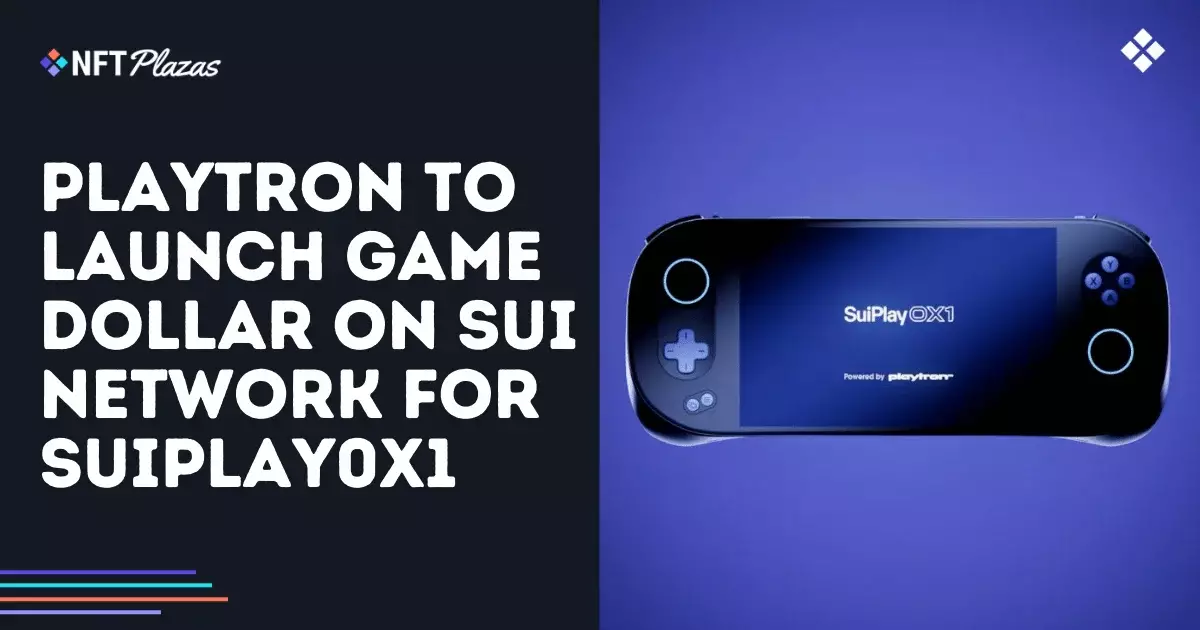The gaming industry always seems to be on the cusp of the extraordinary, and now it’s gearing up for a seismic shift with the introduction of specialized stablecoins. Such innovations are not mere fancy additions; they’re essential for the evolution of in-game economies. Take the upcoming Game Dollar by Playtron as a quintessential example. Unlike traditional stablecoins used heavily in decentralized finance (DeFi), Game Dollar is custom-crafted for gaming environments, presenting a compelling alternative to the hodgepodge of currencies that clutter the current landscape.
With Playtron’s strategic partnership with a stablecoin infrastructure provider, the Game Dollar is set to hit the market in late 2025, coinciding with the launch of their new handheld gaming device. This shows an understanding of the unique needs of gamers that general-purpose stablecoins simply can’t satisfy. Rather than being just another transactional medium, Game Dollar aims to integrate seamlessly with the game ecosystem, embodying a robust alternative to fragmented payment methods currently plaguing the industry.
Willingness to Innovate
What’s particularly exciting about Playtron is its audacity to innovate in a saturated field. The built-in wallet on the SuiPlay0X1, powered by the Linux-based GameOS, allows for an immediate, frictionless transaction experience. Consumers demand convenience, especially in an age of instant gratification, and that’s precisely what Playtron is tapping into. The company’s ambition to embed financial tools directly into the system’s software marks not just an advancement in payment options but represents a broader strategy of making gaming more accessible and enjoyable.
Yet, one can’t ignore the challenges this shift might face. The gaming community is notoriously resistant to change. If Game Dollar doesn’t deliver on its promise of added value—whether through thrilling programming features or enticing incentives—the idea risks falling flat on its face. Gamers are a discerning audience, often cynical about new technologies that purport to enhance their favorite pastime but fail to deliver meaningful improvements.
Navigating Uncertainty with Trust
The involvement of U.S. Treasury-backed assets as collateral offers a layer of trust that many existing solutions lack. However, the real test lies in execution. Will Playtron manage to navigate the complicated regulatory landscape without alienating its user base? The potential for programmable features in Game Dollar has yet to be fully clarified, raising questions about how these functionalities will materialize in practical terms. If executed well, they could indeed revolutionize user engagement, such as offering yield incentives based on gameplay behaviors or actions.
Moreover, the announcement of Game Dollar comes at a time when the blockchain’s adaptation to gaming is rising, with many seeing the alignment of consumer interests and technological capabilities. The partnership with brands can influence the success of Game Dollar, but this will hinge on establishing robust collaborations with developers committed to integrating it into their games. Without a strong launch lineup, even the best innovations can fizzle out before they gain traction.
A Bold New Horizon
As we look eagerly towards the advent of products like the SuiPlay0X1 and Game Dollar, the onus will remain on the industry to attract developers and users alike. This is a pivotal moment where the world of cryptocurrencies and gaming will intersect profoundly. If done right, Playtron could redefine the playing field, but a touch of caution is warranted. Still, I’m excited to see how this dynamic landscape unfolds. Failure or success in this endeavor may redefine not just how we play games, but how we engage with digital economies altogether.














